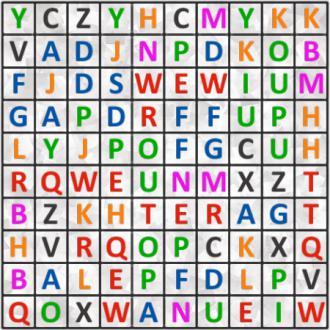Find a famous person
Find the first and the last name of a famous person. Text may go in all 8 directions. Length of words in solution: 6,4.Correct answers: 34
The first user who solved this task is On On Lunarbasil.
#brainteasers #wordpuzzles

What would you like for your birthday....
A middle-aged guy is out to dinner with his wife to celebrate her fortieth birthday. He says, "So what would you like, Julie? A Jaguar? A sable coat? A diamond necklace?"
She says, "Bernie, I want a divorce."
"My goodness," he says, "I wasn't planning on spending that much."

